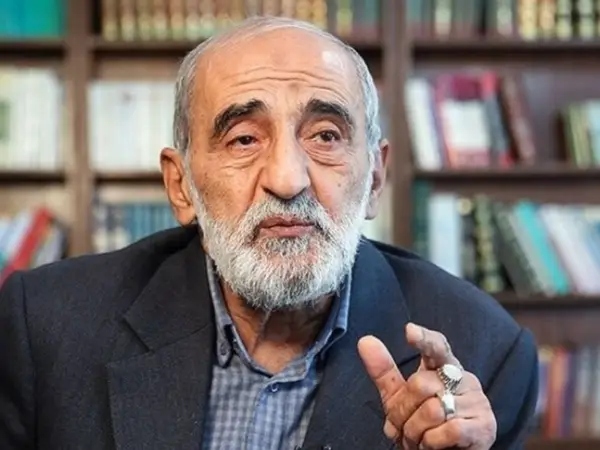An editorial in Kayhan claimed views expressed by its hardliner editor Hossein Shariatmadari were shared by Supreme Leader Ali Khamenei and a unified ‘regime.’
Headlined "Let's Not Deceive Ourselves, Kayhan's Stance Is Leader's Stance," the missive on Tuesday responded to criticism from reformist journalist Ahmad Zeydabadi, who in a Telegram post Thursday wrote that Shariatmadari was behaving as if he is “top authority in the country” by lambasting reformist clerics who had issued a statement finding an “unmistakable crisis” in Iran.
The Kayhan editorial charged that if Zeydabadi were right, then “someone else should be appointed to take the helm of Kayhan… [as] stances put forth by the chief editor of Kayhan have nothing to do with the wish, will, and policies of the system.”
While veteran editor Shariatmadari is Khamenei’s representative at the newspaper, Khamenei has many times declined to follow Shariatmadari’s advice, including over backing talks with Europe two decades ago, with the Americans over Afghanistan and Iraq, and in Iran’s agreeing to limit the nuclear program in signing the 2015 JCPOA (Joint Comprehensive Plan of Action).
But Kayhan’s latest editorial asserted that as a "radical revolutionary," the paper’s chief editor was the first to announce stances the “regime” would subsequently adopt.
Kayhan argued that supporters of a nuclear deal claimed that Supreme Leader's support for the negotiation team led by former Foreign Minister Mohammad-Javad Zarif during the talks was proof of irrelevance of Shariatmadari's criticism, but Zarif's ill fate clearly showed that Shariatmadari's critical stance was the same as the Supreme Leader's stance.
"The one who fell to the ground in the confrontation between Kayhan and Zarif was Zarif, and the one who was honored was Hossein Shariatmadari," the editorial continued. It also reminded readers that Khamenei had last year described as a “big error” Zarif’s criticism of the role in foreign policy of Qasem Soleimani, the Iranian general and Quds Force commander killed by a US drone strike in Baghdad in 2020.
The newspaper was referring to Khamenei's harsh words against Zarif in May 2021 after a leaked audio recording of an interview with him made headlines. In the interview Zarif had strongly criticized the Revolutionary Guards (IRGC) and the former commander of its Qods force, Ghasem Soleimani for hijacking Iran's foreign policy. Without mentioning Zarif's name, Khamenei called the remarks "a big error," that was "regrettable and surprising."
"This was a big mistake that should not have been committed by an Islamic Republic official. The enemies are annoyed by the Qods Force's influence in the region," and one part of the political system should not undermine the other part, Khamenei said.
The editorial went on to suggest it had been Shariatmadari's criticism that had led recently to Ali Shamkhani, secretary of the Supreme National Security Council, retracting a suggestion of the possibility of direct bilateral talks with Washington over the nuclear issue.
